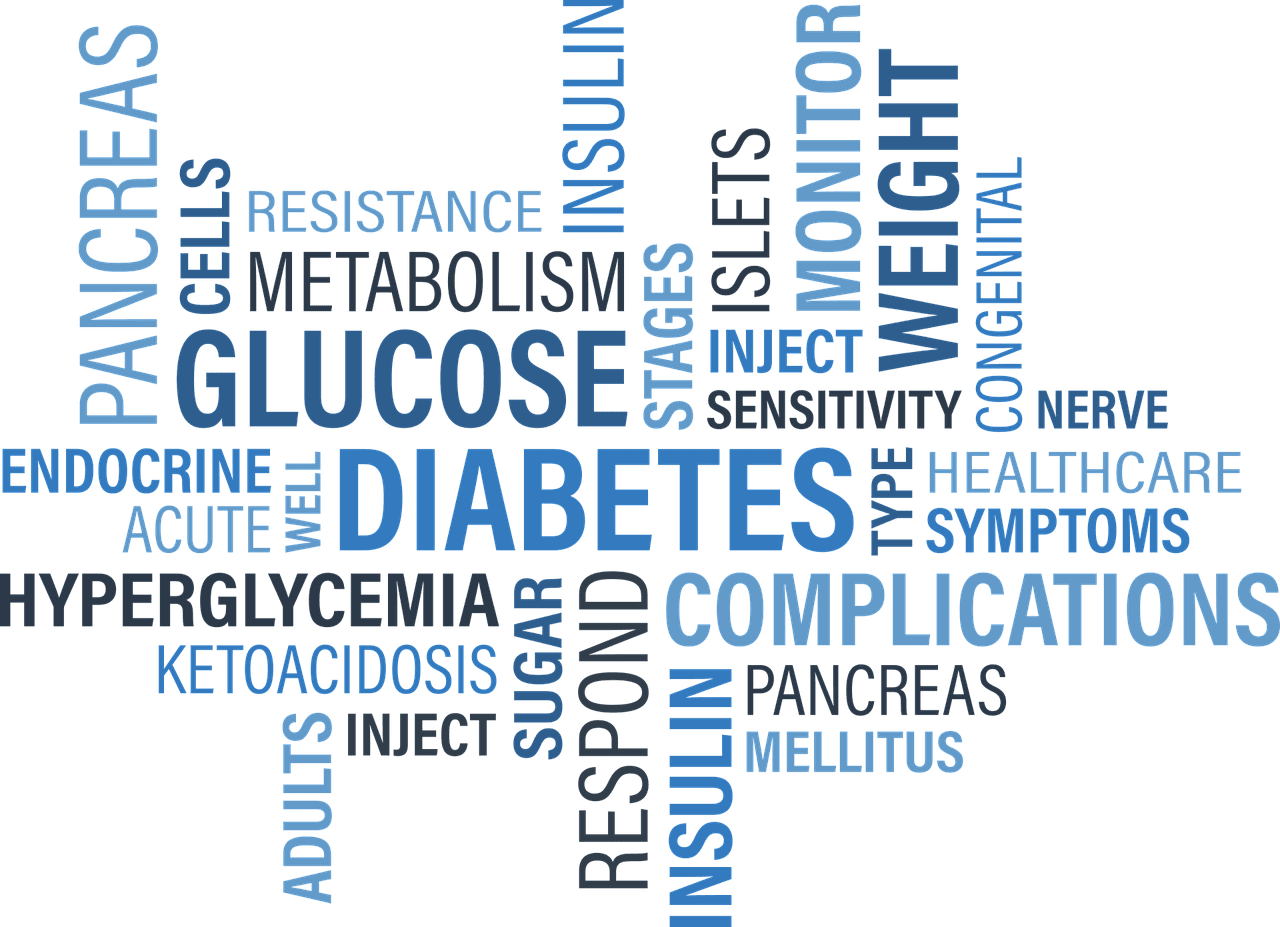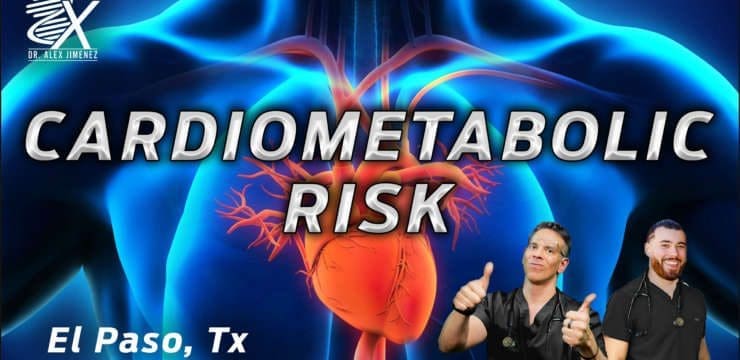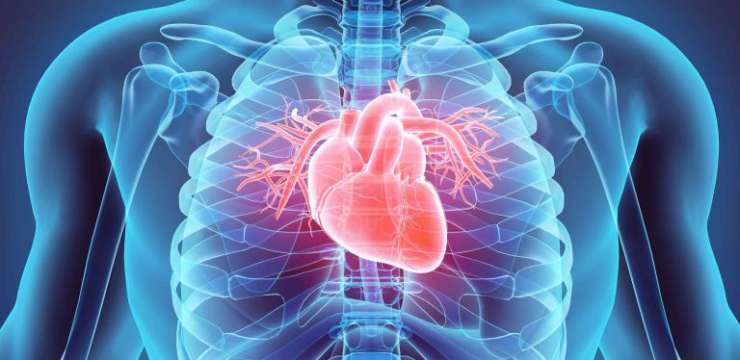
Chronic disease is a medical condition that lasts more than one year and requires ongoing medical treatment. Currently, CVD is the most common chronic disease in the United States, closely followed by cancer and DMT2. In addition, conditions like hypertension and DMT2 are the etiology of chronic kidney disease associated with the structural dysfunction of the kidneys. Furthermore, CVD and DMT2 have common metabolic markers affected by multiple factors like poor nutrition, tobacco use, sedentary lifestyle, and excessive alcohol consumption.Â

In addition to these environmental factors, genetic predisposition and family history impact the incidence of chronic conditions. When a patient is genetically predisposed to physiological pathways dysfunction and exposed to a poor lifestyle, their risk of developing a chronic disease rises.
The co-morbidity overlap among common chronic diseases like cardiovascular disease (CVD), Diabetes Mellitus, hypertension, and chronic kidney disease (CKD) is pushing the diagnostic procedure. Nowadays, the understanding of the affected physiological pathways is the central focus of clinical assessment and treatment. Therefore, the genetic regulation of these pathways is the turning point in controlling and modulating oxidative stress and inflammation, the common denominators of these chronic conditions. Currently, the use of genetic profiling tools is a powerful approach to determine a patient’s risk susceptibility to develop chronic disease and, most importantly, how to modulate them through nutrition and lifestyle.
Table of Contents
Clinical application:
The variation in genes affects the genetic regulation of different physiological pathways. These variations are essential to understand the metabolic and functional changes that determine the incidence and development of chronic conditions.
Inflammatory response:
Candidate genes affecting and regulating the inflammatory response are crucial to the synthesis and release of interleukins and inflammatory cytokines like tumor necrosis factor-alpha (TNF-a) and intercellular Adhesion Molecule 1 (ICAM-1).
A Spanish study with the objective to detect gene candidates regulating physiological dysfunction found the following association:
- Inflammatory genes affecting immune response, glomerular filtration rate (GFR), phosphorus, and PTH levels:Â
- rs5498 from the ICAM-1 gene.
- rs2070874 from the IL-4 gene. rs17561 from the IL-1A gene.
- rs1800797 from the IL-6 gene.
Antioxidant enzymes:
- In addition, other genetic variants also affected crucial metabolic, inflammatory, and nutritional status markers essential to screen the patient’s clinical function. These genetic variants coded for antioxidant enzymes protect the cells against oxidative stress caused by hydrogen peroxide and lipid peroxidases via GPX1 and GPX4. On the other hand, SOD genes protect cells against superoxide radicals.
- rs17080528 from the GPX1 gene.
- rs713041 from the GPX4.
- rs4880 from the SOD2 gene.
-  rs17880135, rs202446, rs1041740 from the  SOD1 gene.
Phase II detox enzymes:
- Filtration markers like creatinine and GFR are the main diagnostic tools for CKD. In addition, as kidney structure gets damaged, other organs become disrupted, which affects the synthesis of albumin, reflecting in low albumin concentrations, followed by an increase in C-reactive protein. This phenomenon is mainly due to an inflammatory state, where acute-phase reactant proteins are prioritized over albumin synthesis by the liver. The genetic variants for phase II metabolism enzymes mediate these biochemical markers.Â
- Â The genetic code Glutathione Transferase Omega-1 codes for GSTO1-1, a constitutive deglutathionylating enzyme that regulates the activation of the NLRP3 inflammasome. The importance of GSTO1-1 reflects on the downregulation of inflammatory cytokine IL-1B, resulting in a controlled inflammatory response.
- rs2164624 from the GSTO1 gene.
-  rs156697 from the GSTO2 gene.
-  rs749174 from the GSTP1 gene.
The correct function of physiological pathways protects cellular integrity reflecting a healthy status. However, with genetic predisposition and the interaction of various environmental factors, disease comes along. Genetic profiling becomes an essential tool to detect genetic predisposition and sets a treatment pathway to prevent chronic diseases.
Functional Medicine seeks to treat upstream; it prevents and supports the recovery of physiological pathways by testing, not guessing. Indeed, Functional Medicine needs genetic testing to avoid diseases by providing the proper nutritional support to modify and downregulate genes. – Ana Paola RodrÃguez Arciniega, MS.
References:
D. Jordi Goldstein-Fuchs, Amy Frances LaPierre,54 – Nutrition and Kidney Disease, Scott J. Gilbert, Daniel E. Weiner, National Kidney Foundation Primer on Kidney Diseases (Sixth Edition), W.B. Saunders,2014, Pages 467-475,
Corredor, Z., Filho, M., RodrÃguez-Ribera, L., Velázquez, A., Hernández, A., Catalano, C., Hemminki, K., Coll, E., Silva, I., Diaz, J. M., Ballarin, J., Vallés Prats, M., Calabia MartÃnez, J., Försti, A., Marcos, R., & Pastor, S. (2020). Genetic Variants Associated with Chronic Kidney Disease in a Spanish Population. Scientific reports, 10(1), 144.Â
Additional Online Links & Resources (Available 24/7)
Â
Online Appointments or Consultations: bit.ly/Book-Online-Appointment
Â
Online Physical Injury / Accident Intake Form:Â bit.ly/Fill-Out-Your-Online-HistoryÂ
Â
Online Functional Medicine Assessment:Â bit.ly/functionmed
Â
Disclaimer
Â
The information herein is not intended to replace a one-on-one relationship with a qualified healthcare professional, licensed physician, and not medical advice. We encourage you to make your own health care decisions based on your research and partnership with a qualified health care professional. Our information scope is limited to chiropractic, musculoskeletal, physical medicines, wellness, sensitive health issues, functional medicine articles, topics, and discussions. We provide and present clinical collaboration with specialists from a wide array of disciplines. Each specialist is governed by their professional scope of practice and their jurisdiction of licensure. We use functional health & wellness protocols to treat and support care for the musculoskeletal system’s injuries or disorders. Our videos, posts, topics, subjects, and insights cover clinical matters, issues, and issues that relate to and support, directly or indirectly, our clinical scope of practice.*Â
Our office has made a reasonable attempt to provide supportive citations and has identified the relevant research study or studies supporting our posts. We provide copies of supporting research studies available to regulatory boards and the public upon request. We understand that we cover matters that require an additional explanation of how it may assist in a particular care plan or treatment protocol; therefore, to further discuss the subject matter above, please feel free to ask Dr. Alex Jimenez or contact us at 915-850-0900. Read More.
Dr. Alex Jimenez DC, MSACP, CCST, IFMCP*, CIFM*, CTG*
email: coach@elpasofunctionalmedicine.com
phone: 915-850-0900
Licensed in Texas & New Mexico
Disclaimers
Professional Scope of Practice *
The information herein on "Genetic-Driven Physiological Pathways in CVD, CKD, and DMT2" is not intended to replace a one-on-one relationship with a qualified health care professional or licensed physician and is not medical advice. We encourage you to make healthcare decisions based on your research and partnership with a qualified healthcare professional.
Blog Information & Scope Discussions
Welcome to El Paso's wellness blog, where Dr. Alex Jimenez, DC, FNP-C, a board-certified Family Practice Nurse Practitioner (FNP-C) and Chiropractor (DC), presents insights on how our team is dedicated to holistic healing and personalized care. Our practice aligns with evidence-based treatment protocols inspired by integrative medicine principles, similar to those found on dralexjimenez.com, focusing on restoring health naturally for patients of all ages.
Our areas of chiropractic practice include Wellness & Nutrition, Chronic Pain, Personal Injury, Auto Accident Care, Work Injuries, Back Injury, Low Back Pain, Neck Pain, Migraine Headaches, Sports Injuries, Severe Sciatica, Scoliosis, Complex Herniated Discs, Fibromyalgia, Chronic Pain, Complex Injuries, Stress Management, Functional Medicine Treatments, and in-scope care protocols.
Our information scope is limited to chiropractic, musculoskeletal, physical medicine, wellness, contributing etiological viscerosomatic disturbances within clinical presentations, associated somato-visceral reflex clinical dynamics, subluxation complexes, sensitive health issues, and functional medicine articles, topics, and discussions.
We provide and present clinical collaboration with specialists from various disciplines. Each specialist is governed by their professional scope of practice and their jurisdiction of licensure. We use functional health & wellness protocols to treat and support care for the injuries or disorders of the musculoskeletal system.
Our videos, posts, topics, subjects, and insights cover clinical matters, issues, and topics that relate to and directly or indirectly support our clinical scope of practice.*
Our office has reasonably attempted to provide supportive citations and has identified the relevant research studies or studies supporting our posts. We provide copies of supporting research studies available to regulatory boards and the public upon request.
We understand that we cover matters that require an additional explanation of how they may assist in a particular care plan or treatment protocol; therefore, to discuss the subject matter above further, please feel free to ask Dr. Alex Jimenez, DC, APRN, FNP-BC, or contact us at 915-850-0900.
We are here to help you and your family.
Blessings
Dr. Alex Jimenez DC, MSACP, APRN, FNP-BC*, CCST, IFMCP, CFMP, ATN
email: coach@elpasofunctionalmedicine.com
Licensed as a Doctor of Chiropractic (DC) in Texas & New Mexico*
Texas DC License # TX5807
New Mexico DC License # NM-DC2182
Licensed as a Registered Nurse (RN*) in Texas & Multistate
Texas RN License # 1191402
ANCC FNP-BC: Board Certified Nurse Practitioner*
Compact Status: Multi-State License: Authorized to Practice in 40 States*
Graduate with Honors: ICHS: MSN-FNP (Family Nurse Practitioner Program)
Degree Granted. Master's in Family Practice MSN Diploma (Cum Laude)
Dr. Alex Jimenez, DC, APRN, FNP-BC*, CFMP, IFMCP, ATN, CCST
My Digital Business Card






